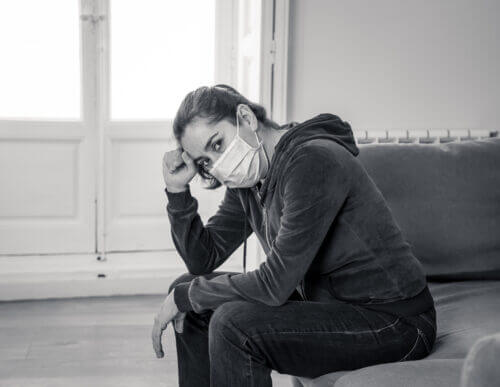The joint study by researchers from Tel Aviv University and Tel Hai College shows that in the midst of the second wave (October 2020) almost every third person in Israel (29%) suffers from high or very high anxiety symptoms

A new study by Tel Aviv University and Tel Hai Academic College reveals that since the outbreak of the corona virus there has been a significant worsening of anxiety and depression symptoms in the population: the study shows that in the midst of the second wave (October 2020) almost every third person in Israel (29%) suffers from high or high anxiety symptoms is very. The data indicate a sharp increase in the rate of anxiety in relation to the lockdown imposed in the first wave of the epidemic (May 2020), when almost one in four respondents (23%) reported a medium-high or very high level of anxiety. For comparison, an examination of the level of anxiety in Israel in 2018, about two years before the Corona crisis, revealed that only one in ten (about 12%) reported a high or very high level of anxiety.
| anxiety level | 2018 measurement | Leaving the first lockdown (May 2020) | Between the closures (July 2020) | The beginning of the second quarantine (October 2020) |
|---|---|---|---|---|
| low and very low | 60% | 41% | 35% | 36% |
| Medium | 28% | 36% | 38% | 35% |
| tall and very tall | 12% | 23% | 27% | 29% |
The research was conducted under the leadership of Dr. Bororia Adini From the Department of Emergency and Disaster Management at the School of Public Health at Tel Aviv University, and the researchers of the Stress and Resilience Research Center at Tel Hai Academic College: Prof. Shaul Kimchi, Prof. Yochanan Eshel and Dr. Hadas Marciano.
As part of the study, the researchers followed the adult Jewish population's coping with the Corona crisis. The study included a sample of 805 respondents. The data also shows that the level of depression has risen significantly over the past year: in the midst of the second wave (October 2020) it was found that one in five people (20%) in Israel suffers from a high and very high level of depression. At the time of the exit from the quarantine imposed in the first wave (May 2020), only 14% of respondents (1 in 7 people) reported a high or very high level of depression. For comparison, in 2018, only 9% of the population (almost 1 in 10 people) reported a high or very high level of depression.
| level of depression | 2018 measurement | Leaving the first lockdown (May 2020) | Between the closures (July 2020) | The beginning of the second quarantine (October 2020) |
|---|---|---|---|---|
| low and very low | 70% | 59% | 57% | 51% |
| Medium | 21% | 27% | 25% | 28% |
| tall and very tall | 9% | 14% | 18% | 20% |
According to the researchers: "The study illustrates the impact of the Corona crisis and the severe damage to the mental resilience of the public. The sharp increase in the rate of citizens suffering from symptoms of anxiety and depression levels is very disturbing and for the most part it is mental damage, hidden from view, that does not receive the appropriate response. It is important to emphasize that anxiety and especially depression may affect the day-to-day functioning of citizens, starting with household management, work, community life and more. The more people suffer from symptoms of depression, the less motivated and willing they are to cooperate and adhere to the government's social distancing guidelines.
In addition, the study raises questions as to whether the state's existing psychological and psychiatric system is capable of dealing with this phenomenon on these scales, and is indeed prepared to provide effective treatment for such a scale of data on anxiety and depression. The question also arises as to whether people who feel depressed and anxious even approach to get help for their mental state, does the health system have effective ways to locate them and treat them ahead of time before their condition gets worse, and what might be the long-term impact of these mental effects on those who suffer from them, on their environment near and far and about the country in general. These questions require immediate attention."
More of the topic in Hayadan:
